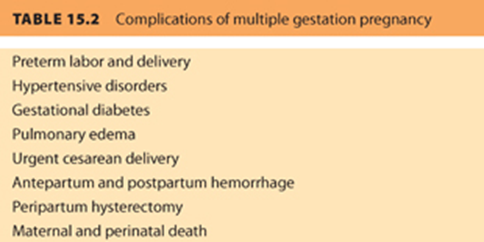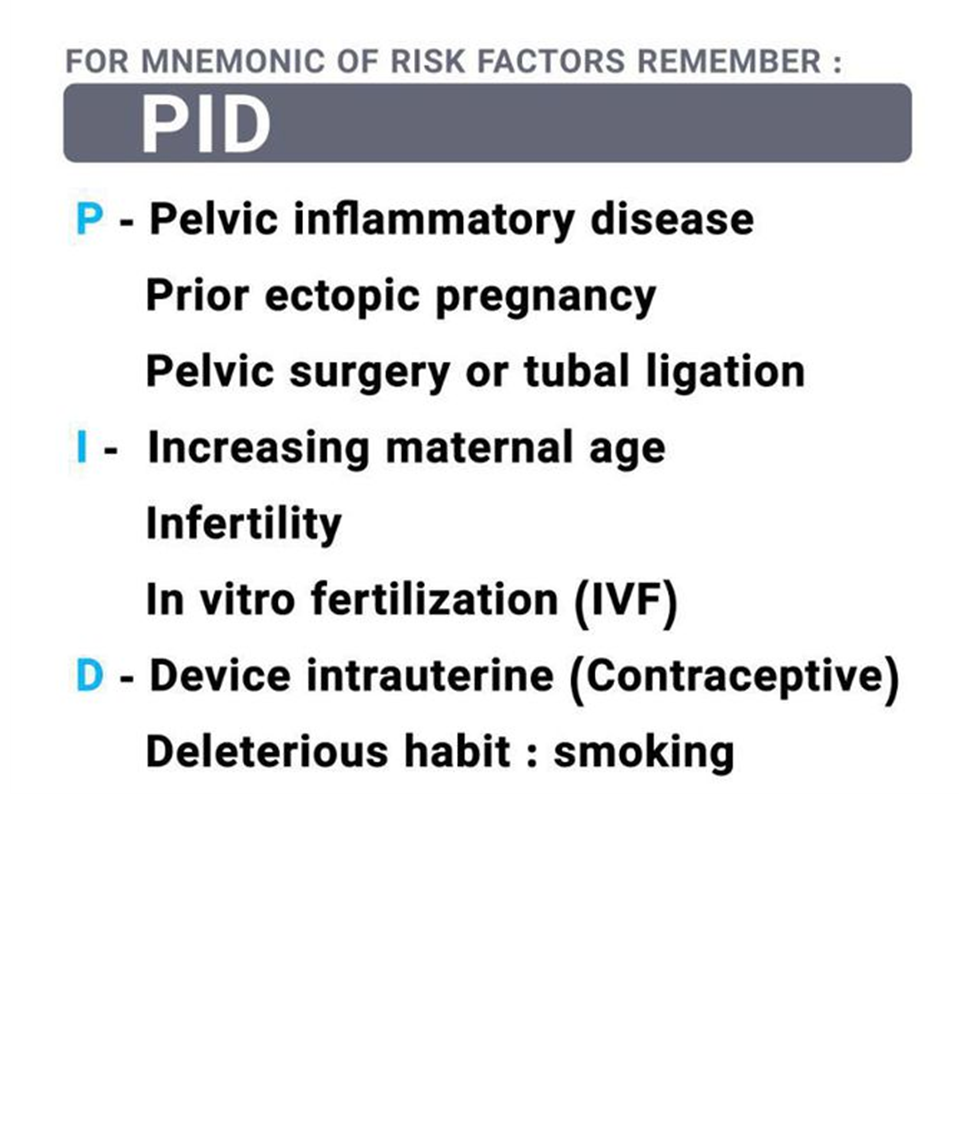A woman pregnant with twins comes to the clinic for an evaluation. While assessing the client, the nurse would be especially alert for signs and symptoms for which potential problem?
oligohydramnios
preeclampsia
chorioamnionitis
post-term labor
The Correct Answer is B
A. Oligohydramnios:
Oligohydramnios refers to a condition where there is too little amniotic fluid surrounding the fetus in the womb. It can be concerning because amniotic fluid plays a crucial role in protecting and cushioning the fetus, aiding in lung development, and preventing compression of the umbilical cord. While oligohydramnios can be a complication in pregnancy, it's not necessarily more common or specific to twin pregnancies compared to singleton pregnancies.
B. Preeclampsia:
Preeclampsia is a serious pregnancy complication characterized by high blood pressure and signs of damage to other organ systems, such as the liver and kidneys. It usually develops after 20 weeks of pregnancy and can lead to serious complications for both the mother and the babies if not managed properly. Multiple pregnancies, including twins, are considered a risk factor for developing preeclampsia. Therefore, pregnant women carrying twins require close monitoring for signs and symptoms of preeclampsia.
C. Chorioamnionitis:
Chorioamnionitis is an infection of the fetal membranes (chorion and amnion) and amniotic fluid. It typically occurs due to bacterial infection ascending from the vagina into the uterus, often during prolonged labor or rupture of membranes. While chorioamnionitis is a concern in pregnancy, it's not necessarily more common in twin pregnancies compared to singleton pregnancies.
D. Post-term labor:
Post-term labor refers to labor that begins after 42 weeks of gestation. Prolonged pregnancy beyond the due date can increase the risks of complications for both the mother and the baby, including fetal distress, macrosomia (large birth weight), and meconium aspiration. Post-term labor can occur in both singleton and multiple pregnancies, but it's not specifically more associated with twin pregnancies.

Nursing Test Bank
Naxlex Comprehensive Predictor Exams
Related Questions
Correct Answer is B
Explanation
A. 24 hours before birth and 24 hours after birth:
This option suggests administering Rho(D) immune globulin (RhIg) both before and after birth. However, the standard recommendation is to administer RhIg at 28 weeks' gestation and again within 72 hours after birth. Administering RhIg before birth in this manner is not a standard practice for preventing Rh isoimmunization.
B. At 28 weeks' gestation and again within 72 hours after birth:
This is the correct choice. Administering RhIg at 28 weeks' gestation helps prevent sensitization of the Rh-negative mother to Rh-positive fetal blood cells that may have entered her circulation during pregnancy. Administering it again within 72 hours after birth helps prevent sensitization from any Rh-positive fetal blood cells that may have entered the mother's circulation during delivery.
C. At 32 weeks' gestation and immediately before discharge:
Administering RhIg at 32 weeks' gestation is not the standard recommendation. The standard timing is at 28 weeks' gestation to cover the critical period of sensitization during pregnancy. Administering it immediately before discharge may not provide adequate protection if sensitization has already occurred during pregnancy.
D. In the first trimester and within 2 hours of birth:
Administering RhIg in the first trimester is not a routine practice unless there is a specific indication, such as miscarriage or invasive procedures that may lead to fetal-maternal hemorrhage. Administering it within 2 hours of birth alone does not provide adequate protection against sensitization during pregnancy. The standard recommendation is to administer RhIg at 28 weeks' gestation and again within 72 hours after birth to cover the critical periods of sensitization during pregnancy and delivery.
Correct Answer is A
Explanation
A. Recurrent pelvic infections:
Pelvic infections, particularly those affecting the fallopian tubes (such as pelvic inflammatory disease), can lead to scarring and damage to the fallopian tubes. Scar tissue can obstruct the normal passage of the fertilized egg, increasing the risk of ectopic pregnancy.
B. Heavy, irregular menses:
While irregular menstrual cycles can sometimes be associated with conditions like polycystic ovary syndrome (PCOS), heavy and irregular menses are not typically considered direct risk factors for ectopic pregnancy. However, underlying conditions contributing to irregular menstrual cycles, such as hormonal imbalances or conditions affecting the reproductive organs, could potentially increase the risk.
C. Use of oral contraceptives for 5 years:
Oral contraceptives (birth control pills) are known to significantly reduce the risk of ectopic pregnancy. They work by preventing ovulation and altering the uterine lining, making it less likely for a fertilized egg to implant outside the uterus. Therefore, long-term use of oral contraceptives would generally decrease the risk of ectopic pregnancy rather than increase it.
D. Ovarian cyst 2 years ago:
While ovarian cysts are common and usually benign, they typically do not directly contribute to the risk of ectopic pregnancy. However, certain types of ovarian cysts, such as those associated with conditions like polycystic ovary syndrome (PCOS) or endometriosis, may indirectly affect fertility and increase the risk of complications during pregnancy, including ectopic pregnancy.

Whether you are a student looking to ace your exams or a practicing nurse seeking to enhance your expertise , our nursing education contents will empower you with the confidence and competence to make a difference in the lives of patients and become a respected leader in the healthcare field.
Visit Naxlex, invest in your future and unlock endless possibilities with our unparalleled nursing education contents today
Report Wrong Answer on the Current Question
Do you disagree with the answer? If yes, what is your expected answer? Explain.
Kindly be descriptive with the issue you are facing.
